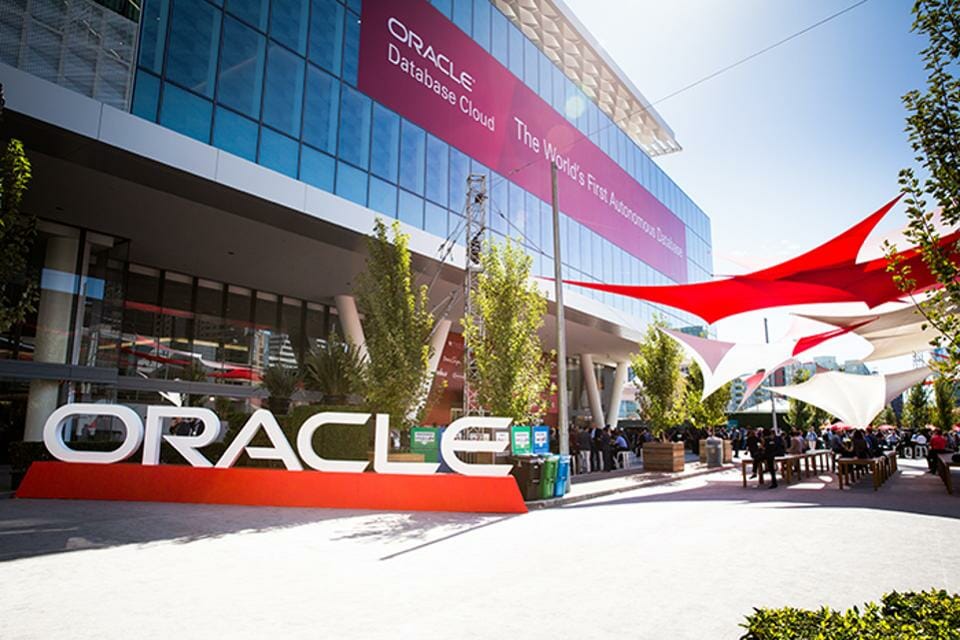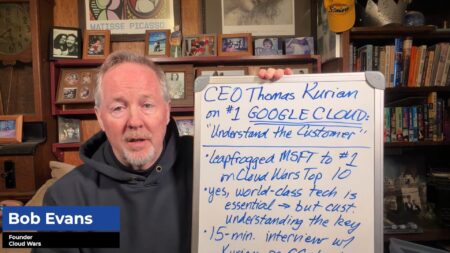Even before the COVID-19 pandemic triggered a global economic slowdown across many industries, telecommunications giant SKY Brasil was facing some challenging decisions tied to the turbulent Brazilian economy.
Today, that disruptive combination serves to underscore the wisdom of SKY Brasil’s decision to turn to autonomous solutions from Oracle to lower costs, boost productivity and allow the company to make more-timely and more-relevant offers available to consumers.
With Brazil’s gyrating economy disrupting consumers’ buying power and budgets, SKY Brasil needed new data-analysis capabilities to help it reduce churn via new marketing offers and programs.
SKY Brasil’s choice of Oracle Autonomous Data Warehouse solved more than that serious problem. It also has boosted the IT team’s productivity, allowed it to focus more time on business projects rather than technical grunt-work, lowered costs and won rave reviews from its internal clients in the marketing department.
It’s a powerful story of the game-changing capabilities of Oracle’s new autonomous technologies to revolutionize IT-department workflows, priorities and business value—and perhaps corporate culture as well.
In fact, said SKY Brasil IT director Andre Nazare, the Autonomous Data Warehouse project was so successful that it culminated in the IT infrastructure team being called up on stage to receive an award from the company president.
In a recent phone interview, Nazare outlined the challenges the company faced, the role Autonomous Data Warehouse is playing and the widespread positive impacts it has had on everything from accelerated operations to new data-analysis capabilities to an entirely new sense of what’s possible for the company.
The business challenge for SKY Brasil: reducing customer churn in a fluctuating economy.
“The economy in Brazil is like a rollercoaster. Sometimes people lose their jobs, and they are not able to pay us. Others might be frustrated with something related to service, some of them might be having difficulties too because they just upgraded and they lost their jobs. So how do we try to put together and deliver the best offer for that specific customer? We were getting information from different sources and trying to figure out what the best offers would be. And so the biggest use case was profiling the customers.”
The technology challenge: how to scale up the massive infrastructure such a project would require?
“We got the project, and we understand how to do it, and I got it approved, but then we asked ourselves, ‘but how do we provide this huge infrastructure?’ So initially I thought I need to have this tier one storage and top-notch service to run this.
Enter Oracle Autonomous Data Warehouse.
“We started this in February of 2019 and Autonomous Data Warehouse was quite new—it had just been released. But something that was appealing to us was if I have a database that has the ability to adapt itself to a number of different queries, can scale up and scale down if necessary, that would be great for us, because we have a big burden when we have to over-provision a server. We had ended up with this huge server that most of the time is not even performing, and more importantly, we need to have this team of DBAs trying to monitor and understand what would be the best way to optimize for this situation or that situation. With Autonomous Database, we have seen a 90 percent reduction in time to market and a savings of more than 60 percent on infrastructure costs.
“We called Oracle and said, ‘Hey, if you want to be on board on us with this, we might end up using Autonomous, but we want to try it for a couple of months before we lease the project into production.’ My technical team, the DBAs, they were kind of skeptical. But we decided to move forward anyways and at least try something different.”
Dazzling the clients in Marketing.
“The reality was it was much better than we anticipated. Of course in the beginning we had realized that we should have more load on the system, so we created some use cases to simulate the user load so the database itself could learn and could adapt itself to the different situations that we have on a daily basis. From the business perspective, what was real nice – and was surprise for us – was we had almost no surprises, and it wasn’t a burden to use the Autonomous Database.
“And the customers here, my client areas—the marketing people and the database marketing people and the business-intelligence people—they were really amazed and saying, ‘What did you do? How did you guys do that? Did you do this with a huge machine?’ Because we had some queries that used to take 17 minutes and now they were running in a matter of seconds—7 seconds, actually. This was the self-tuning in the Autonomous Database optimizing the query performance applying artificial intelligence and machine learning.”
Shortening the time to value: “It’s almost too good to be true.”
“Overall, the satisfaction of the internal users, and the speed to bring these new models from design to production was greatly impacted by Autonomous. Normally it would take us five to six weeks to perfect a model, the specific model, and get the data and people working on it and they have to do it multiple times and adjust the models over and over. But now new models are being created every other week—and that two weeks is big!
“For small changes, we can now do them on a streamlined process and that is quite different from before where I would have to submit those queries to the DBAs, and the DBAs had to do the normal DBA job of analyzing, and seeding the profiles, and creating an index and this and that, and updating the statistics. But now all that’s being handled by Autonomous. So in a nutshell, it’s almost too good to be true, but it’s working, and we are now beginning to test and try Autonomous for transaction processing.”
Those successes have inspired the SKY Brasil to test a number of new approaches.
“Yes, yes, yes—we’ve had some opportunities with some situations as you mentioned. If we were analyzing a certain type of customers, like prepaid customers, and we want to investigate going back 6 months or one year or even 2 years to see if there is any major change in the behavior, and then try to correlate that with the changes that we do on our products and our offers. But before we have this infrastructure on Autonomous, people would be very cautious about doing something like that—they’d say ‘you know what, maybe we should start running on this model for two or three months, maybe tops six months, and if we don’t get results we need, we can expand a little more. Because they were just afraid that it will take too long to run that type of analysis.
“Overall the change was really good—from the business perspective now they can do more, they can do faster, and they can do things that they were afraid to do in the past because either it will take too long or would end up impacting other users as well.”
Autonomous Data Warehouse automates a great deal of low-value work so that SKY Brasil’s DBAs can focus on higher-value projects.
“Autonomous takes a big load out of DBAs’ hands. For instance, backing up databases, controlling expansion of table spaces, storage, it all goes away, right? So we don’t care about this anymore. We have this one person, a team leader, talking to our DBAs and says, ‘You know what? I’m working on this and it seems great. Now I have more time to deliver projects, to work on more advanced things.’
“We have two DBAs now that just love working with Autonomous because it took the burden of these day-by-day activities from them. But at the beginning they were worried about their jobs, as most people will do. But I would say now on any day they’re doing 90% more new workloads, new projects, new initiatives than they were doing before.”
Another major benefit of Autonomous Database: lower costs of related work.
“So we change what they are doing and their productivity without spending more money to do those projects, because back in the day we had to hire and all these consultants for a couple of months, or hire this company for six months to implement that project. But now most of the projects are being done by the internal team itself, which is a way for the company to save money.”
Raising productivity and learning new skills is boosting the morale among the SKY Brasil IT team.
“We have this initiative of more and more migrating infrastructure from on-premises to the cloud, and initially we thought we’re going to spend a whole bunch of money to do that, because we needed to hire new people, and that was reality of most projects we do. Let’s say we want to upgrade the database or migrate to a new machine—we would hire external companies who help us do that, because our capacity was almost at full at all times. We didn’t have people to spare, to do new work. They were focused on keeping the system running and just day-by-day activities.
“Now, everything that we did on the Autonomous project itself, other projects that we have on Oracle and other clouds, are being done by the same team. So this is great because they are working on new stuff, which was something they usually didn’t do in the past. They are learning new technology and new ways to do their jobs, and they’re happier because they can see that the business is seeing the value of what they’re doing. I’m sure that at this moment DBAs are very happy with their jobs, and if they get let’s say a proposal of 10% raise to work somewhere else but doing the regular DBA stuff, I would bet you $100 that way they will stay here.”
And all that innovation led to some very nice recognition from SKY Brasil’s president.
“At the end of January we had an internal meeting. The entire company was there—all the VPs and the president and all the employees, and we were celebrating some initiatives and projects that we did last year. And I think, ‘I can’t remember when we had the infrastructure team being on the stage with the president and receiving the award!’ So they were super happy to say, ‘Is this true?
“The line of business understood that because of the effort that they’ve put on the implementation and the risks we took to embrace this new technology we needed to get the most of it, that’s why a project that we started in March was already running by July. From buying the machine, migrating the database, installing, doing it the regular way it just wouldn’t be possible to do all that in 4-5 months.”
For SKY Brasil, Autonomous Data Warehouse has had an enormous impact in multiple areas.
“I would say it was a game-changer for us. People don’t see us now as a team that will make their projects be slower. They see us as enablers. This is much more than anyone I think could ask, because I’m not sure if you guys have the same saying in the US, but here what I heard from previous executives, and vice presidents, and presidents was this: a good infrastructure guy is one that no one remembers. And that’s fair, not because, I mean you don’t have any problems, so the systems are up. Four nines, five nines, that’s great. That’s okay. But not seeing you as someone that could help them change the way they do things? Maybe for some people that’s okay, but for me that was always frustrating.
“I’m saying for me and on behalf of my team itself that we are people who can help the company do more, do differently, and do things that in the past they didn’t have the chance to do, either because it was too expensive or because it was too complicated to set up. It’s really good. They feel good. The team is proud of what they’re doing, and it’s very good momentum for us. So, it’s a game changer.”
This article is brought to you by Oracle.








